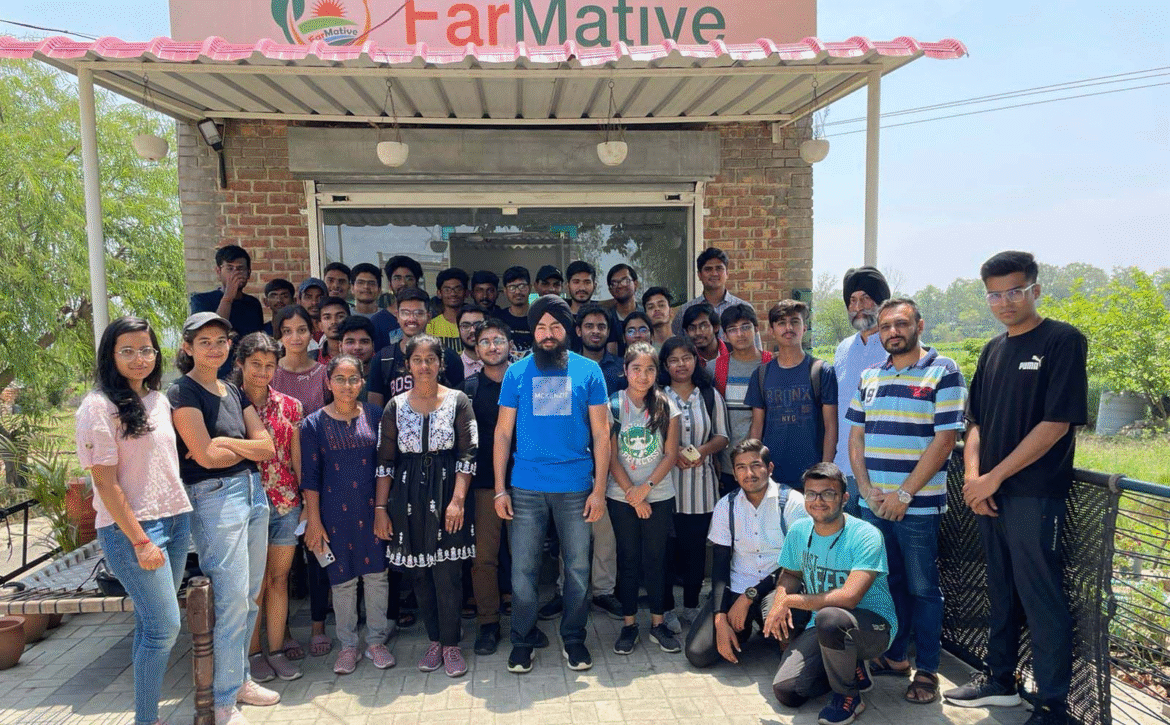AI Generated Summary
- In 2010, Paramjit took a leap of faith by dedicating a small portion of his land to cultivating finger millets, driven by a desire to make small-scale farming both viable and profitable.
- What began as a modest experiment on just one hectare of land has blossomed into a beacon of agricultural innovation and entrepreneurship in Punjab.
- Paramjit Singh Pannu, a farmer from Katari village, is leading a quiet revolution—using millets to challenge conventional farming norms and chart a new path toward sustainable agriculture.
What began as a modest experiment on just one hectare of land has blossomed into a beacon of agricultural innovation and entrepreneurship in Punjab. Paramjit Singh Pannu, a farmer from Katari village, is leading a quiet revolution—using millets to challenge conventional farming norms and chart a new path toward sustainable agriculture.
In 2010, Paramjit took a leap of faith by dedicating a small portion of his land to cultivating finger millets, driven by a desire to make small-scale farming both viable and profitable. With no mentors and limited knowledge, his journey was fraught with difficulties. Yet, his persistence paid off.
“I had no one to guide me,” he recalls. “But once I started seeing the results, there was no turning back.”
Today, Paramjit’s brand ‘Farmative’ offers millet-based flour, biscuits, and instant food items through a modest retail outlet. His efforts have not gone unnoticed—he was selected for the TIGR2ESS Flagship Project 4 Programme, a capacity-building initiative run by the Centre for International Projects Trust (CIPT). He has since partnered with national and international firms as a trusted manufacturing partner.
With the rise in health-conscious consumers and growing awareness around sustainable food sources, millets are seeing a resurgence. Paramjit has capitalized on this trend by expanding his millet cultivation during the kharif season and supplying his produce to dairy farmers through traditional arhtiyas.
“The demand is growing. As more people turn to millets, the profitability of such crops will only increase,” he notes.
Not content with personal success alone, Paramjit has taken up the mantle of community development. He works closely with farmers in his village, offering seeds, buying their surplus produce, and even helping run a collective storage facility. His next goal is to establish a Farmer Producer Organisation (FPO), uniting cultivators from nearby villages to scale up production and processing.
He is also an active member of the ‘Punjab Native Seed Growers’ group, which showcases millet-based products at food festivals across India and abroad—proving that this ancient grain has a modern future.
Paramjit’s story, however, also comes with a note of caution. “Punjab’s youngsters are leaving in search of greener pastures abroad. But our land is a treasure—we need to explore its true potential. Change will come only when the young take the lead,” he says.
He laments the lack of substantial governmental support for diversification, pointing out that many farmers are still hesitant to move away from water-intensive conventional crops. “Water scarcity is real and worsening. We have to act now. Motivation and guidance from the government are inadequate. Farmers must take charge of their own future,” he urges.
Paramjit Singh Pannu stands as a testament to what innovation, resilience, and community spirit can achieve—even in the face of limited resources. Through millets, he is not just transforming his own fields, but sowing seeds of hope for Punjab’s agricultural future.




